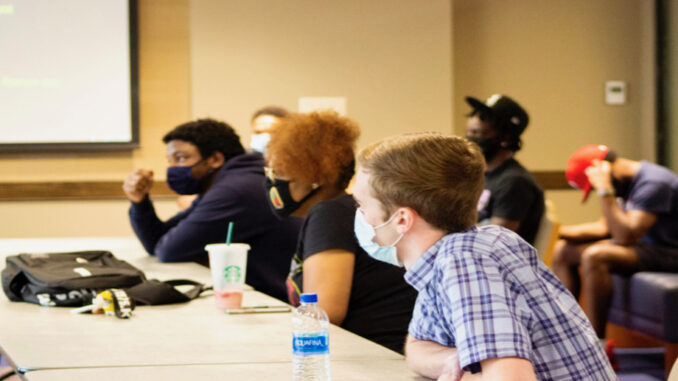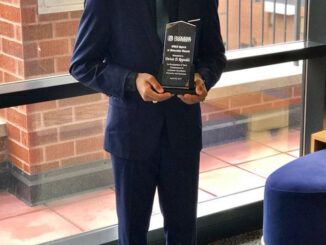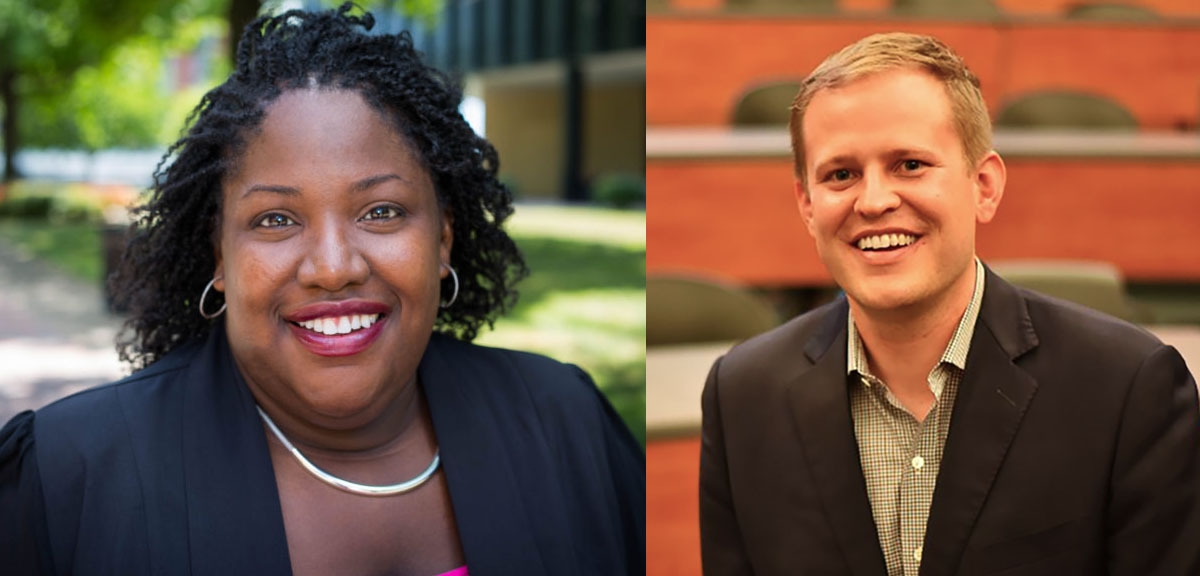
09/10/2020
Colleen Hammond | News Editor
In an attempt to bridge the racial divide from a social distance, Duquesne’s chapter of the National Association for the Advancement of Colored People (NAACP) held an open discussion on the Black Lives Matter Movement in person and over Zoom Wednesday evening.
The two-hour discussion, which was open to students and faculty of all races, attempted to create a safe space for a cross-section of campus to discuss the recent social change surrounding the Black Lives Mat- ter movement and its effects on Duquesne’s Black community.
Since the death of George Floyd in late May, protests have erupted across the country — and social media– demanding racial justice in all aspects of American life.
The NAACP leaders began the group discussion by posing the question to the group “Is Black Lives Matter a trend?”
Over the summer, social media trends, such as posting a solid black tile or using the hashtag “BLM” soared in popularity, but many in the group found this deeply ineffective and even angering.
“Your heart’s in the right place, but it’s not enough,” said Makeem White, a supporter of the Black Lives Matter Movement and mem- ber of the NAACP.
White and his peers expressed their concern that these posts and social media crazes turn this civil and political movement into a fleeting trend.
“I feel like for a lot of people, it’s just performative,” said Angel Williamson-Wheat, a member of the NAACP.
As an organization that is look- ing to impact social change on cam- pus, several members reiterated the importance of engaging in civic discourse and activism outside of social media.
“If you’re doing it in private, more power to you,” said Roman Ramsey, a member of the Black Student Union and the NAACP. For Ramsey and his peers, the best way to exercise true allyship is through persistent self-education and avid reading.
“The internet is bountiful with history,” Ramsey said. Ramsey advocated for delving into America’s history and present, no matter how dark and uncomfortable.
The discussion also featured a variety of topics ranging from reparations, affirmative action, police brutality, corporate sup- port of Black Lives Matter and support of the LGBTQ+ commu- nity within the Black community.
“All we want is to be treated equally,” said Darian Reynolds, president of the Black Student Union.
Ramsey further described the backsliding of civil rights move- ments as an “Alice in Wonder- land circle” where the same struggles are seen over and over with problems growing and shrinking repeatedly.
For the first hour of the event, the discussion remained produc- tive with multiple students in- person and over Zoom sharing their ideas to improve the Black Lives Matter movement.
However, halfway through the event, the discussion took a turn as the president of the college Republicans, Alec Skomo, redirected the conversation to his opposition for the Black Lives Matter movement.
“My side is that I don’t support Black Lives Matter,” Skomo said
When Skomo was asked if he thinks Black people are oppressed in the U.S., he responded with a flat “no.”
Skomo further went on to state that the Three Fifths Compromise of 1787 was not racist or racially motivated, that the Black Lives Matter movement would be the “detriment” of the Black community and that Black students have an easier time getting accepted to Duquesne because of affirmative action.
In the closing statement of the meeting, Reynolds also mentioned that this was not the first time Skomo had voiced similar views.
In a recent Zoom meeting held for all campus organization presidents, Skomo asked Director of Diversity and Inclusion, An- thony Kane, why white students were denied entry to an all-Black mental health support group. Although the group was designed to provide Black students with a safe place to share their experiences and struggles with racial injustice, Skomo felt white students should also be allowed to the event.
He went so far to state that denial of white students to the event was contradictory to the office’s mission of diversity and inclusion.
Skomo’s comments left many in the group noticably uncomfortable with one student getting up and walking out of the room for a short time.
Although he had visibly upset several of the students present with his remarks, Skomo did not apologize and instead criticized the event. He also stated that had he known it was an NAACP event, he would not have attended at all.
Despite Skomo’s comments to the group, the NAACP allowed him to speak freely and calmly addressed his points and ques- tions. Several group members even said they were glad Skomo showed up to the meeting, hoping his views would change through this experience.
Skomo said to the group that his views had not changed nor evolved from attending the meeting.
The NAACP hopes to hold more events like this in the future to further educate and dialogue with the campus community on issues of race and diversity, including those who do not share their same social and political views.




